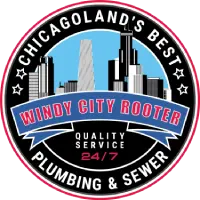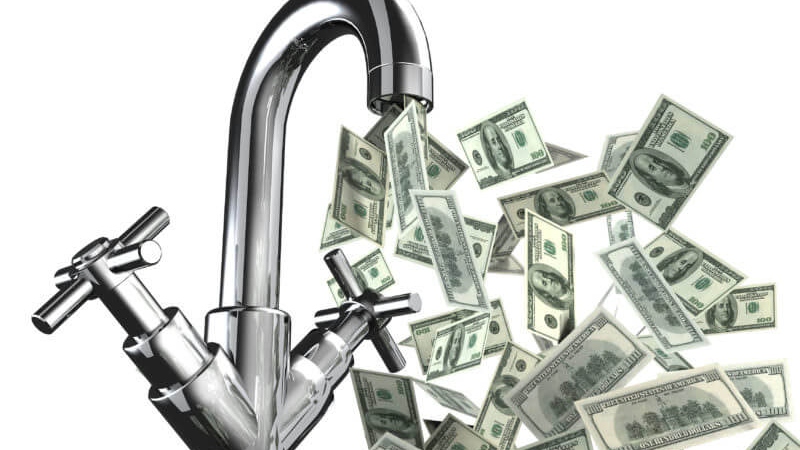Most of us forget our homes conceal intricate plumbing systems. We expect our home plumbing to function as designed. Yet it is possible to improve home plumbing efficiency with some proactive measures. The tips outlined below just might prevent a nasty problem from rearing its ugly head down the line in the form of a broken plumbing fixture that must be repaired or replaced. Abide by the advice set forth in this article and you will rest easy knowing you’ve done your part to prevent frustrating and costly home plumbing problems.
Why These Plumbing Tips and Tricks Matter
Before digging into the nitty-gritty of home plumbing advice, it is prudent to explain why the average homeowner should take heed of such knowledge. Incorporating the wisdom outlined below has the potential to ward off repairs and replacements, decrease your utility bills and extend the lifespan of your plumbing fixtures and appliances. After all, a home plumbing system that is neglected will eventually decrease in performance across time. You can do your part to prevent time-consuming and expensive plumbing problems by taking matters into your own hands with the relatively minor tricks and tips explained below.
1. Water Heater Maintenance
An annual inspection of your water heater will ensure that it is operating at peak capacity. This maintenance session will also guarantee that the water heater doesn’t have any flaws that could lead to plumbing problems. Furthermore, maintenance gives a water heater aficionado the chance to tune up the unit and ensure everything is in proper working order.
2. Avoiding Liquid Drain Cleaners
Though it is tempting to pour liquid drain cleaners down your drains, doing so could create some plumbing nightmares. Heat is generated due to the fact that the majority of liquid drain cleaners function by generating a chemical reaction within the drain pipe. This heat can cause some nasty damage to the pipe. The chemicals will rest on the clogged area, creating the potential to weaken or even melt the pipe. When in doubt, do not hesitate to call a plumber to rectify the problem.
3. Maintaining Gutters so That They Don’t Lead to Leaking and Flooding
Your gutters matter a great deal when it comes to preventing costly, time-consuming water-related problems. Be sure to maintain and check your gutters on a regular basis to ensure they are completely clear. Clogged gutters are more likely to generate a backlog of water that has the potential to cause flooding and leaks.
4. Insulating Your Water Heater
One of the best ways to save money in the context of home plumbing is to maintain the water heater. Insulate your water heater and you will save a considerable amount of money. Even if the insulation decreases the water heater’s temperature by a few degrees, you will enjoy some nice savings over time. Do not let your water heater reach 120 degrees Fahrenheit or higher. Insulating a water heater can even be as simple as applying a water-heater blanket. This insulation will allow for minimal energy to be used when warming water each time a faucet is turned on.
5. Investigating and Addressing any Water Pressure Problems
If you notice any water pressure problems, do not neglect them! Water pressure problems can spiral out of control to the point that they devolve into uber-expensive repair or replacement projects that eat into your savings. Have a professional plumber examine your home plumbing’s nuances and allow him to implement the proper solution. This way, you’ll remedy the water pressure issue before it creates an even more serious problem.
6. Investigate and Address Poorly Smelling Drains
If you notice any of your home’s drains emit an odor, don’t let it slide. An odorous drain is a sign that something is wrong with your plumbing. Drainage systems are engineered in a manner that should prevent venting within the home. Perhaps there is an issue with the water trap. Maybe there is a design flaw or a venting problem. Lean on a professional plumber for an accurate diagnosis and repair.
7. Maintain/Tune up Your Washing Machine, Dishwasher, and any Major Plumbing Appliances Before it’s Too Late
Scheduling a tune up of your washing machine, dishwasher and other main appliances once a year will greatly reduce the odds of a costly breakdown. These machines become less efficient as time progresses. A tune up will improve their performance, heighten efficiency and possibly even ward off a repair or replacement that busts your budget.
8. Installing Drain “Strainers” in Kitchen Sink Drain and Shower Drain
Strainers aren’t only for pasta. Use strains in your kitchen sink and shower and you’ll prevent a buildup of hair that clogs your drains. No one wants to deal with a clog so be proactive by relying on a strainer that collects hair and other gunk before it can create an extremely frustrating and costly problem.
9. Check Your Toilet Flapper
A leaky toilet can waste a ton of water and consequently, your hard-earned money. Take a look at your toilet flapper to determine if there is a leak. If a leak exists, it will repeatedly spur the fill valve to send water to the tank. You can test the toilet flapper by dropping some food coloring in the tank. Let it rest idle for half an hour. Then check the toilet bowl. If the bowl is colored with the same hue as the food coloring, there is a leak. It might be possible that debris or other sediment has accumulated around the flapper. Dislodge this debris before committing to replacing the toilet flapper.
10. Stop any Leaky Appliances
Leaky appliances create annoying noises and set you back financially. A dripping faucet has the potential to waste upwards of 15 gallons worth of water per day. There is no sense in paying for that water when you get no use from it. Remedying leaky appliances has the potential to save you hundreds of dollars on your annual water bill. Reach out to a professional plumber to fix the leak and you’ll save plenty of money in the long run.

